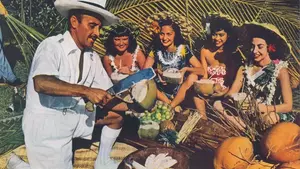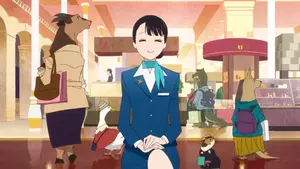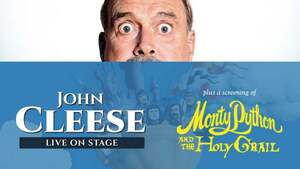Equus
Equus
By Peter Shaffer
Directed by Thomas Ouellette
Starring Eric Zivot, Michael Nardelli
Annie Russell Theater, Winter Park, FL</strong>
The crime was a horrendous as it was seemingly pointless. Six horses were blinded by troubled 17 year old Alan Strang (Michael Nardelli), a boy who seemed to adore the species. Before they lock him up for a very long time, magistrate Hesther Solomon (Erica Leas) drops him off with child psychologist Martin Dysart (Eric Zivot). For the next two hours, we follow Dysart’s journey as he discovers Alan’s motivation and his own fears. The crime occurred for a solid if twisted reason, and by the end, we all feel that we, too, could fall into Alan’s trap, or push someone we love off that cliff of insanity.
This is one of Rollins’ finest projects in recent memory. Zivot’s Dysart is earnest if over worked, but he is soon as obsessed with Alan as Alan is with horses. His delivery is analytic and anguished, and in Alan he finds the son he never had. For his part, Alan slides easily between psychosis, snotty adolescence, and the completely absorbed horse lover. His parents are part of his problem, but not an excuse for what he did. Mother Dora (Megan Borkes) worries about his eternal soul while father Frank (Joseph Bromfeild) prefers tough unionism, but seem too young for the role. The story is set in rural England, but there’s a confusing mix of accents, with Hesther, Alan and Frank sounding the most English, and everyone else leaning toward a neutral American sound.
The set design (by Alan Cody-Rapport) reflects the arty minimalism of the 60’s. A series of tall and a bit wobbly beams alternate as the stalls for the horse stable, and Dysart’s office. Incidental furniture folds up from the floor as needed and murky lighting deepens the mystery of “Why?” One of the coolest elements of the show is the wrought aluminum horse heads worn by the actors portraying the denizens of the stable. They hang on the back wall, neither art nor animal. As needed the supporting actors slide into them, and they clip clop around the stage with metal hooves. All that’s missing is the smell.
This complicated psychological piece holds multiple strata of meaning, not unlike the Greek archeological sites Dysart visits on his annual vacation. We touch on worship, sexuality, bad dreams, and our ability to transfer a part of ourselves into another person, animal or even an object. While the story is notionally set in The Present, there’s a dated feeling from the early 60’s psychobabble. In a very fashionable ending, Dysart boldly announces he can heal Alan, but only at the cost of his own mental health. Different in detail, but not in results, Alan’s case differs little from the hundreds of other damaged children that pass though Dysart’s career. Why this one matters is the reason you might want to see this show more than once.
For more information on the Annie Russell Theatre at Rollins College, please visit












